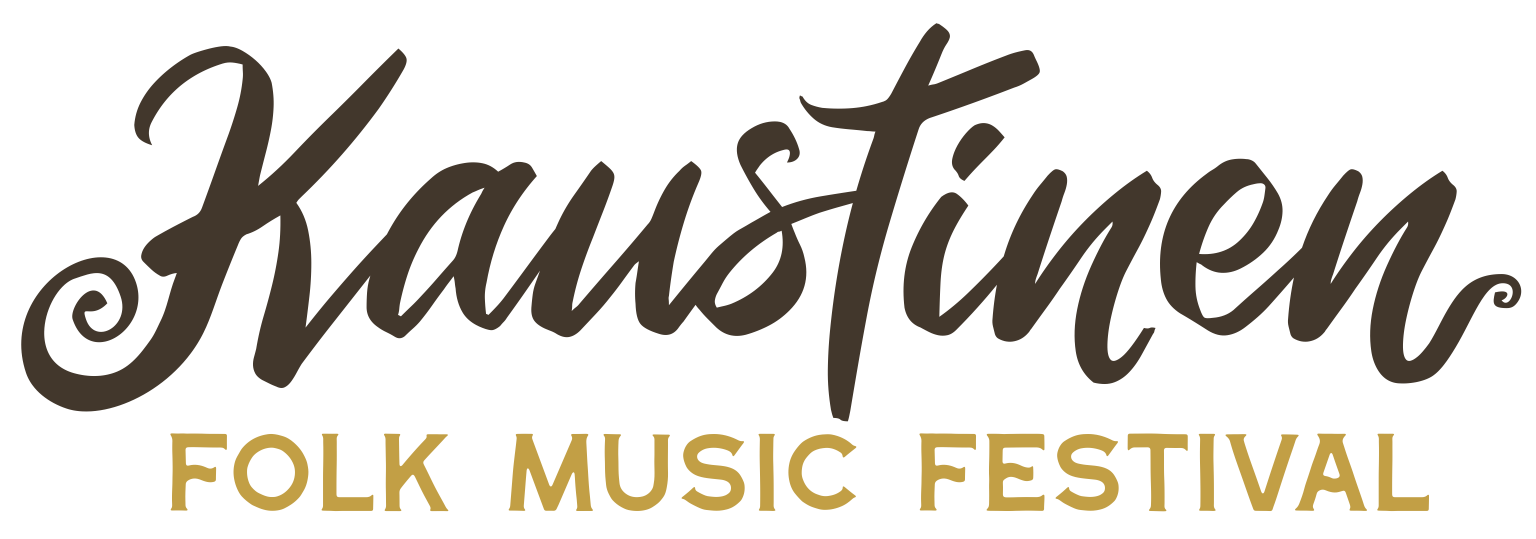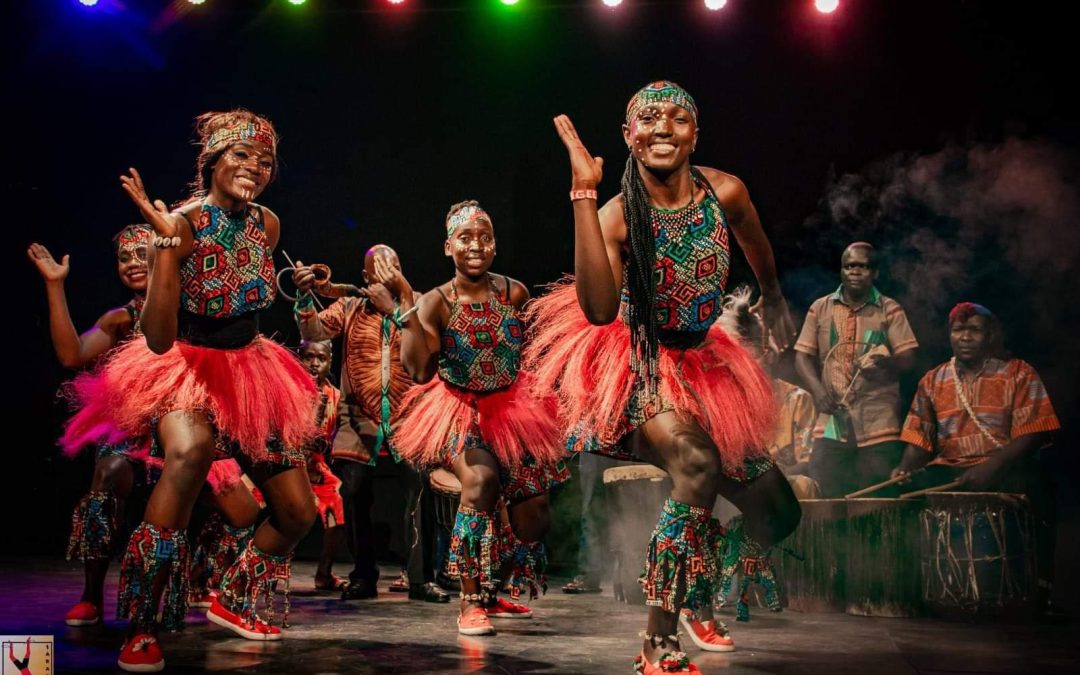More than 20 dancers will arrive in Kaustinen in July with the Kenyan group Wana Mziki Afrika. (Photo: Linus Omondi)
Artists: Aili Järvelä, Arppa, Laura Moisio, Muska, Samuli Putro, Scandinavian Music Group
Ethiopia, Kenya, Colombia, Ukraine - groups from these countries will arrive in Kaustinen on July 10th - 16th to perform but also to share their experiences of war and peace. They will be accompanied by musicians and dancers and experts to discuss peace, the festival's theme this year.
No less than 550 groups from 16 countries will be arriving in Kaustinen and performing as part of the largest folk music festival in the Nordic countries.
- The foundation of the festival has yet again grown stronger after Kaustinen fiddle playing tradition entered UNESCO's list of intangible cultural heritage. Next summer's festival has been organized even more in cooperation with many parties. The community spirit is awakening more and more all the time, both locally and more widely, says Valtteri Valo, Executive Director of Pro Kaustinen ry.
Finnish folk music pioneer band Tallari performs a concert with their guests: Swedish Jonas Simonsson from Sweden, Irish Tiónol and Inari Sami Anna Morottaja. During the festival week, 20-year-old Hyperborea and 30-year-old Bill Hota will perform on different stages, as well as Päivi Hirvonen Trio, Alda, Haaga Folk Machine, Onni Rajaniemi and J-P Piirainen.
The festival now also confirms next summer's artists: Aili Järvelä, Arppa and Laura Moisio for the early days of the week, Muska Babitzin and Samuli Putro on Thursday, Scandinavian Music Group on Friday. In the Hopeinen kuu concert dance, the audience can dance to the music by HT Combo orchestra, featuring soloists Mikael Konttinen and Henrik Perelló (violin).
During the festival week, Kaustinen serves a versatile look into what is happening in folk music in Europe. Interesting bands include Elephant Sessions and Breabach from Scotland, Gangar from Norway, Hudaki Village Band from Ukraine, PásztorHóra from Hungary and Les Trois Lezards from Italy. Kanta Dab Dab band arrives all the way from Nepal.
Remote Connection to Ukraine
- Our annual theme suddenly seems more important than anything else. What can peace work mean more specifically and what does it mean in different situations for different people and community? Everyone can contribute to peace in their everyday life and hobbies, Programme Director Anne-Mari Hakamäki says.
On Saturday at 11 o'clock the Kaustinen Folk Music Festival organizes an international peace seminar called Intangible Cultural Heritage in Peace Work - Preparedness, Response and Reconstruction. The participants come from countries that live in different stages with their own conflict.
The seminar host, director of the Folk Music Institute, Matti Hakamäki, reminds us that war is always about language and culture as well. Music is also a strong symbol in war and conflict situations.
- The peace seminar has three perspectives: 1. what kind of conservation work is good to do during peace, 2. how to move important people and cultural heritage to safety when the conflict is on, and 3. what to do after the conflict, Matti Hakamäki describes.
Participants from Ukraine will join by remote connection, representatives from Poland and Lithuania will bring their views of the warring country's neighborhood.
Dance All Day and All Night
Kenyan dance tradition is strongly present at the festival. Wana Mziki Afrika is one of the most spectacular performing groups of the entire festival – with more than 20 members, it is representative of more than 40 ethnic groups in its country. The endangered Isukuti celebration tradition has been listed as Intangible Cultural Heritage by UNESCO, and Wana Mziki Africa's ceremonial performances are filled with the passion of dance, drumming and song.
The festival’s extensive dance programme also includes the spectacular big dance work Viimeinen sapiens (The Last Sapiens). It brings the spectacle of more than 20 dancers and musicians to Kaustinen together with Jarkko Martikainen's songs.
The main arena's large community dance, Night of the Minuets, Iltavilli and the legendary Night Quadrille led by Petri Kauppinen and JPP are part of the late night programme as usual. The closing dance of the week will be played by Orivesi All Stars, Finland's largest folk music orchestra, on Saturday evening.
More Than 550 Performing Groups
The popularity of the Pelimanni programme was surprising at the beginning of the year, when already in January there was an exceptionally high number of registrations. Programme Director Anne-Mari Hakamäki is happy that the folk music fans are really on the move in large numbers.
- More than 550 performing groups are coming. This year's provincial theme is Central Finland, and there is an enthusiastic crowd coming from there with the strength of entire families, says Hakamäki.
Throughout the week, the living heritage point serves as a meeting place for organizers and enthusiasts of intangible cultural heritage in the festival area. This year, you can get to know Finnish log driving tradition, sauna culture and knitting as a phenomenon. In the sauna village, festival guests can even stop by for a sauna.
Regional Councilor Viljo S. Määttälä had a significant impact on the birth and development of folk music festivals. Actor Panu Valo's dramatized viewing of the magical effect of Kaustinen fiddle music is the villagers' tribute to the memory of the Toholampi resident born a hundred years ago. The performance will be seen on Thursday and Saturday at Keskipohjanmaa Arena.
The festival also offers a strong programme for the whole family. In addition to the Children's Kaustinen programme, the young festival crowd will surely be delighted when presenters known from the legendary TV show Pikku Kakkonen will take the main arena. Tuomo Rannankari will perform with his own orchestra on Tuesday, and Susanna Volanto on Wednesday with Laitakaupungin orkesteri, which will play for the second time on Wednesday with Sussu Erkinheimo, who won The Voice of Finland last year.
Like previous years, the new master folk musicians will be announced on the opening day on Monday. That's also when the top moments of the country's most demanding folk music competition begin, when the semi-finals of the Konsta Jylhä Competition start for the 12th time.
New Accommodation in a Tent Village
There are many accommodation solutions in Kaustinen, neighboring municipalities and Kokkola. Moving from one place to another can be done comfortably with the festival bus, which operates on a precise schedule day and night between Kaustinen and Kokkola.
Close to the festival area, all Hotelli Kaustinen's rooms, campsite cabins, caravan parking and even official tent sites have already been sold out. So Terhi Väkeväinen, the hotel manager of Kaustisen Kehitys Oy, started thinking about how to develop more accommodation.
- For the first time, a tent village will be erected on the field next to the campsite, where you can now have ready made camping beds with blankets, pillows and sheets. The hotel's services are available to those staying in tents, and there will be container toilets and showers connected to the village.
The luxury tents have travel cots and can accommodate 1–4 people. With camping mattresses and sleeping bags, one tent can accommodate up to 12 people. Tents are always booked one tent at a time.
- Let's try to get more accommodation places for Kaustinen this way. And yes, you can always fit somewhere with your own little tent, Terhi Väkeväinen promises.
Kaustinen Folk Music Festival will be held for the 56th time from 10 to 16 July in Kaustinen in Central Ostrobothnia. Current information can be found at Kaustinen.net and the mobile application. You can read more about the tent village at Hotellikaustinen.fi.
Lue myös:
Iki-Turso, band of the year 2023
Showcase Bands 2023

